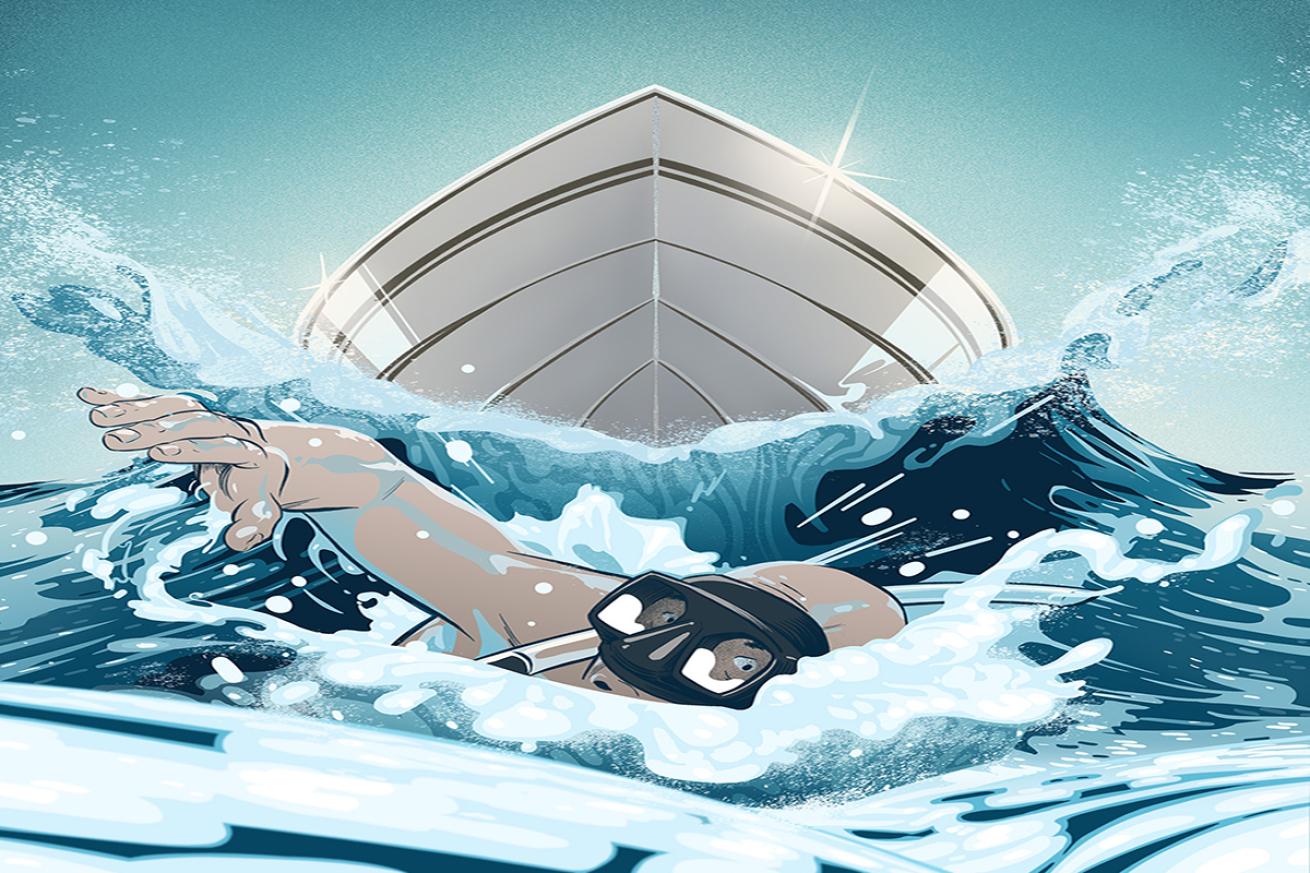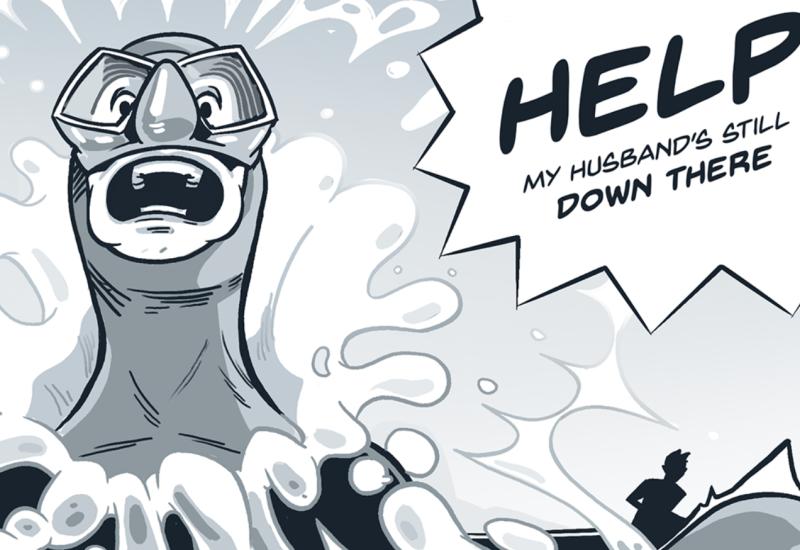Dive Defensively | Lessons for Life

Steven P. HughesIrresponsible boaters can put you at risk.
Tex and two friends were snorkeling in their local lake. They were new to the sport and wanted to try it before a planned trip to Hawaii. They knew there were boaters in the area, but hadn’t thought much about what would happen if one of the boats came close. They had been told, and signs confirmed, that the area was designated for scuba diving.
Hearing a high-pitched whine, Tex looked up and realized he was in trouble.
THE DIVER Tex was a 60-year-old male in good health. He was active and enjoyed outdoor sports. He took to snorkeling quickly and was comfortable in the water. He had just retired.
THE DIVE The three snorkelers arrived at the lake around 10 a.m. to try out their brand-new gear. The sky was clear with a gentle breeze—a perfect day to be on the lake. A few boaters were just getting started.
Tex and his friends parked and donned their gear. They noted signs indicating this was a swimming area, and that boaters were supposed to stay 100 yards away and observe a no-wake zone. There were also signs indicating the area was set aside for scuba diving.
THE ACCIDENT The snorkelers had been in the water about 20 minutes and were growing more comfortable with their gear. Instead of raising their heads out of the water every minute or so, they relaxed and were able to swim comfortably. As he swam, Tex heard a whine but wasn’t sure what it was. The noise grew louder, and Tex raised his head to ask his friends if they heard it too. He was startled to see a large twin-engine speedboat heading directly toward him.
Tex spit out his snorkel and waved his arms frantically, but it was too late. The boater wasn’t paying attention and crossed the swimming area at high speed. The boat missed his friends but hit Tex, running over him with both propellers. One prop hit him on the head and the other just above the ankle.
Another boat that happened to have a doctor and nurse on board got Tex out of the water and stabilized him, controlling his bleeding. Tex was airlifted to a trauma center and had several surgeries but recovered. The boater didn’t stop, but was flagged down and cited.
ANALYSIS Divers learn that sound travels more than four times faster in water than it does in air. That makes it difficult to determine the direction a noise is coming from.
Also, many people don’t recognize the sound of a propeller. They imagine a boat sounds like an engine, as compared to the whining noise a prop makes as it spins.
In Tex’s case, he wasn’t trained as a diver and never learned about sound or situational safety in the water. Like many people, he purchased a mask-snorkel-fin set from his local sporting goods store and was trying the sport for the first time.
Tex saw the signs designating the area for swimming and diving and thought he was safe. The accident was the boater’s fault, but that doesn’t mean we can’t learn from it. Divers, swimmers, freedivers and snorkelers have a low profile that makes them hard to see from a moving boat, especially if the boat is accelerating and the bow is raised out of the water.
When we learned to drive, we learned to be defensive. We were told to watch out for other drivers and to anticipate their mistakes. The same applies to snorkeling and diving. We have to watch out for boaters and other potential problems in the water, and be ready to protect ourselves.
Any time you are diving, you need to have a high-visibility dive flag floating on the surface. Boaters should stay at least 300 feet from the traditional red-and-white diver-down flags and buoys in open water, and at least 100 feet away in inlets or navigation channels. It is also important for divers to resurface within 150 feet of the dive flag in open water, or closer if required by local law or circumstances.
Another lesson we all learned in our open-water classes is to ascend slowly while rotating, to make sure there is nothing on the surface to get you in trouble. This is a lesson that tends to slip away as new divers become more comfortable, but it is important for your safety.
LESSONS FOR LIFE
- Protect yourself. Be a defensive diver. Watch your surroundings, and take precautions when boaters are nearby.
- Fly the flag. Make sure boats and other divers can easily see you on the surface. If you are swimming, snorkeling or freediving, wear brightly colored clothing or wetsuit to raise your visibility.
- First aid. A good first-aid course and a solid first-aid kit should automatically be part of your dive prep.
Get more life lessons:










